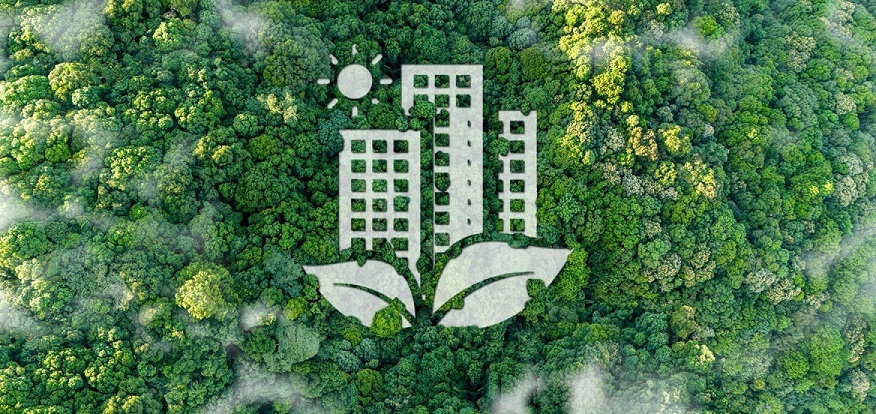
Climate change is no longer a distant threat; it is an immediate reality, affecting communities, ecosystems and economies across the globe.
Universities are uniquely positioned to lead the way in facing this global challenge and creating a more sustainable future – not just through their research efforts, but also in how they operate, educate and engage with their communities. The climate emergency demands a collective, informed response, and universities are at the heart of this effort.
Research and innovation undertaken by our universities shapes our wider understanding of climate science and helps us to develop solutions to the climate crisis. Many Welsh universities are at the forefront of these efforts, whether through advancing renewable energy solutions, carbon capture methods and green technologies, or developing sustainable approaches to agriculture and manufacturing. These initiatives are not just about research; they translate ideas into real-world applications that can help mitigate—and potentially reverse—climate and ecological damage.
For example, here at Swansea University, we are collaborating with NGOs, governments and stakeholders on seagrass restoration strategies in the UK. Seagrass ecosystems are vital as they capture carbon and protect coastlines from flooding, playing a significant role in combating both the climate and biodiversity crises. This work exemplifies how university-led research not only addresses environmental challenges, but also offers scalable solutions with the potential for global adoption.
At Swansea, we take seriously our responsibility to upskill the sustainability leaders and decision-makers of tomorrow, ensuring that they have the skills needed to lead change and work in emerging green sectors. We offer Carbon Literacy training for students and staff alike, equipping them with the knowledge needed to reduce emissions at local level and advocate for sustainable practices. These programs ensure that graduates leave not just with degrees but with the skills and knowledge to drive environmental change in their careers and communities.
Beyond our research and teaching activities, universities are also leading by example through our sustainable campus operations. Today’s students play a crucial role in holding institutions accountable, with 91% wanting their universities to take active climate action and 74% of international students considering environmental efforts when choosing where to study. This is reflected in a broader trend within our higher education sector, as universities worldwide commit to sustainable development goals, divest from fossil fuels and prioritise renewable energy solutions.
At Swansea University we are proud of our ambitious Sustainability and Climate Emergency Strategy, through which we aim to achieve net zero carbon emissions by 2035.
In support of this, we have made significant strides by installing over 2,000 solar panels, developing net zero-ready buildings and investing in energy-efficient technologies like smart LED lighting and air-source heat pumps across our estate. Such initiatives illustrate how campuses themselves can operate as microcosms of sustainable communities, providing a working paradigm for larger-scale adoption of green technologies in urban and rural areas alike.
We are proud to be a founding member of the Nature Positive Universities Alliance. From the beach and dunes of our Bay Campus to the woodland, meadows and gardens of Singleton Park, our university campuses host diverse wildlife and ecosystems. Our conservation projects, such as developing wildflower meadows, managing Crymlyn Burrows as a Site of Special Scientific Interest, and earning Bee Friendly and Hedgehog Friendly Gold status, showcase how urban areas can be designed thoughtfully to support biodiversity.
We understand that it is impossible for any one organisation to solve the climate crisis alone. Effective mobilisation requires collaboration with local and regional organisations to ensure that sustainability efforts are coordinated, impactful and scalable. We have seen first hand the significant impact of Local Nature Partnerships here in Swansea, aligning biodiversity initiatives with regional efforts and leveraging the expertise of partners like BugLife and Natural Resources Wales.
Swansea University’s efforts demonstrate the potential of higher education institutions to serve as hubs of innovation, learning and action. Through our pioneering research, sustainable operations and the education of future leaders, universities have the power to shape both policy and practice. In the fight to halt the climate crisis, the leadership and vision of universities is essential in building a sustainable, resilient future for all.
